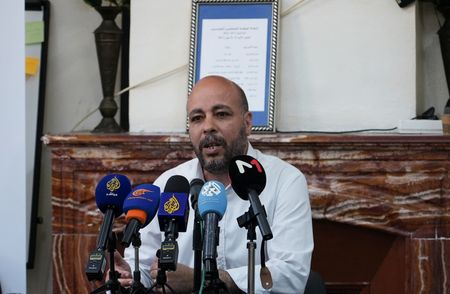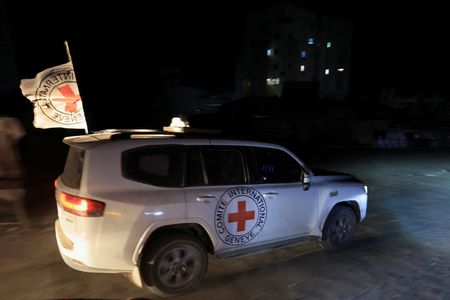By Emma Farge
GENEVA (Reuters) -Russia has been chasing civilians who live near the front line in Ukraine with drones, hounding them out of their homes and hunting them down, forcing thousands to flee whole areas in what amounts to a crime against humanity, a U.N. inquiry found.
The report by the Independent International Commission of Inquiry on Ukraine described civilians who were chased over long distances by drones with mounted cameras, and sometimes then attacked with fire bombs or explosives while seeking shelter.
“These attacks were committed as part of a coordinated policy to drive out civilians from those territories and amount to the crime against humanity of forcible transfer of population,” said the 17-page report to be presented to the United Nations General Assembly this week.
Its findings were based on interviews with 226 people including victims, witnesses, aid workers and local authorities as well as hundreds of verified online videos.
The attacks described in the report occurred in three regions in southern Ukraine, near the front line and across the Dnipro River from Russian forces, over a period of more than a year.
Russia denies intentionally targeting civilians in Ukraine, although its forces have killed thousands of them since mounting a full-scale invasion three and a half years ago. Ukraine has also struck civilian infrastructure targets in Russia and in Russian-held parts of Ukraine, though on a far smaller scale.
One woman from Kherson was pursued by a drone in August 2024 as she parked her car and then attacked and injured by it as she sought refuge in her garage, the report said. Two more drones arrived the same day and struck her home – which she then abandoned, it said.
The drone attacks had caused a sharp decrease in the population in some areas, the report said, with only older people and those with impairments remaining in some places.
“There can be no doubt about these drone operators acting with intent,” Erik Mose, Chair of the Inquiry, told Reuters. “They are really pursuing human beings, be they in their gardens, at home or in the street,” he said.
Some of the survivors interviewed by U.N. investigators said they felt “hunted” and Mose said perpetrators had also used the term in drone videos posted online.
Even fire brigades, medics and other first responders have been hit, depriving locals of emergency services where they are most needed, the report said.
The U.N. inquiry said in May that such attacks amounted to the crime against humanity of murder. But in this report it also found they amounted to forcible transfer and that they occurred in a broader area covering over 300 km (180 miles).
The report also documented that Russian authorities have coordinated actions to deport or transfer civilians from areas of the Zaporizhzhia region under their control, in what it said amounted to war crimes.
(Reporting by Emma FargeEditing by Peter Graff)









